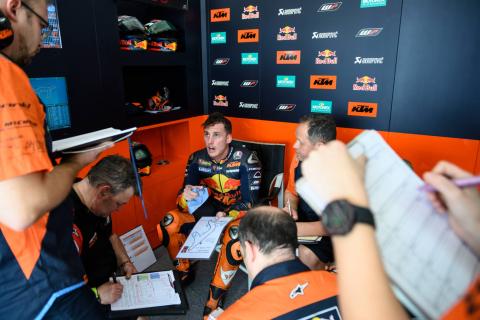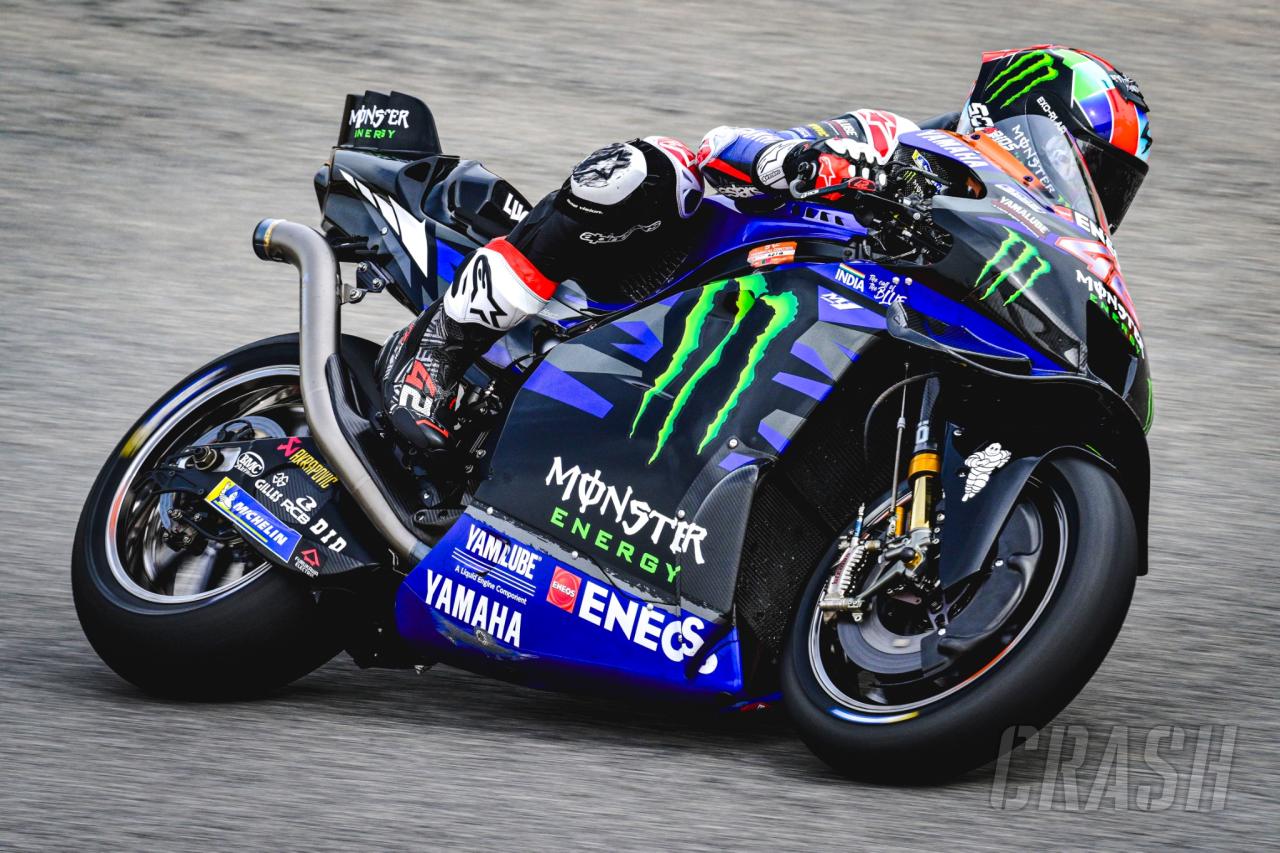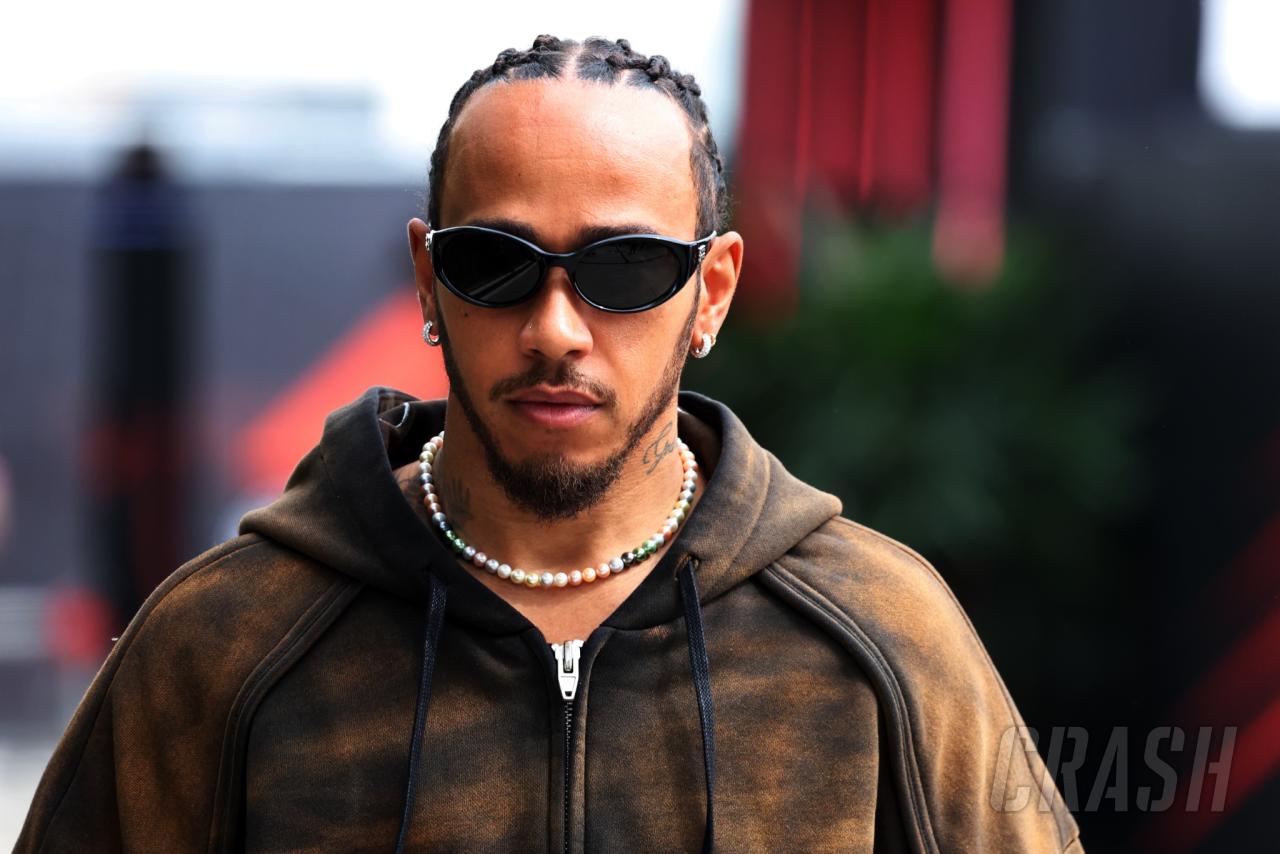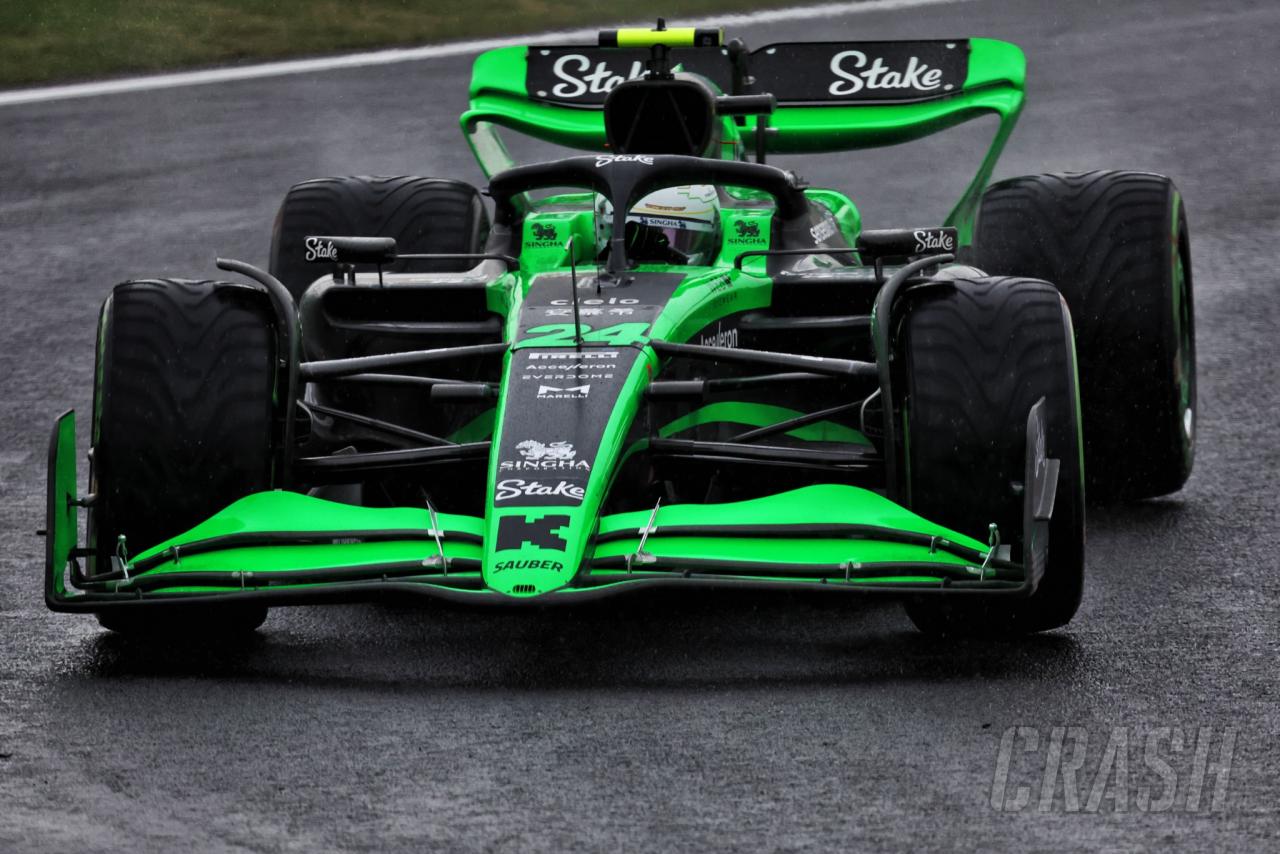
Mission Control: 'MotoGP shouldn't go in F1's direction'
Watch Live Race and all sessions
Watch Replay Race and all sessions
2020 MotoGP Race Calendar,Race Results and Replays
2020 MotoGP Standings
With trackside staff restricted for closed-door MotoGP races, might the manufacturers put those unable to work at the circuit – or indeed other additional staff – into a ‘remote’ race weekend role?It already happens to a small degree in MotoGP but is taken to extreme lengths in Formula One, where the biggest teams have over 100 engineers in special ‘Mission Control’ race-support rooms at the factory headquarters.This army of remote race-engineers is in constant dialogue with the team at the circuit, pouring over data beamed from the track and running computer simulations to suggest things like set-up changes and tyre choice for the following session.MotoGP will allow a maximum of 45 staff per factory team at its closed-door races and 25 for each satellite team, with some of the factory staff also working for the satellite team.A top factory MotoGP team normally brings around 50-60 staff to each event. But with no sponsors, guests, written media or fans present for closed-doors rounds, most of those staying at home due to the lower limit will be on the non-technical side.”I think there is still an okay number of staff [45] allowed to go to the races,” KTM motorsport director Pit Beirer told .But F1’s use of ‘Mission Control’ rooms mushroomed after trackside staff limits were imposed – exactly the situation MotoGP is now entering, albeit due to the coronavirus rather than cost-cutting, in F1’s case.gg793383.jpg accImages.createImage();’Racing on the track, not in an office’ understands that some MotoGP teams do plan to have some additional technical staff working remotely during closed-door race weekends, but Beirer hopes MotoGP never goes as far down the ‘Mission Control’ road as F1.”To keep the sport healthy for the future we should not go into that direction of Formula One and have 60, 70, 80-plus engineers sitting at home supplying data to the race track,” Beirer said.”Of course, it would be helpful, but I think it is absolutely not necessary to do what we want to do: We want to race a motorcycle on the racetrack, we want to make the public happy with that show.”Why does the public watch MotoGP? To see our incredible riders on these rockets. And they want to find out who is the better rider on that machine.”But I think people will never come to the racetrack or switch on a TV to find out who are the 100 smartest engineers on the race weekend sitting in the back office at the factory.”4″I would really cry for every euro I had to spend for this kind of direction. I really want to keep the spirit of racing exactly like it is and when I say we miss racing, we miss racing on the racetrack and not in an office.”We want to be all together again at the racetrack and if it’s not allowed to bring everyone to the track, the ones that are not allowed to go will cry, but the rest will put on a show!”The first of MotoGP’s closed-door races is scheduled for Jerez on July 19, with the season presently due to conclude at Valencia in mid-November, pending the addition of any flyaway races.gg814550.jpg accImages.createImage();Yamaha: Biggest concern is freedom of travelWhile the European manufacturers (KTM, Aprilia and Ducati) should face few difficulties in getting their 45 essential staff to the events, with their factory engineers and most of the mechanics already based inside the EU, the Japanese brands (Honda, Yamaha and Suzuki) are more worried about the current travel and immigration restrictions.”Our biggest remaining concern is freedom of travel for the Japanese group,” Yamaha’s Lin Jarvis told Speedweek.com. “In our case, the Australian [mechanics, for Valentino Rossi] also need to come.”Now we have an official calendar, we can now give clear reasons [to the authorities] why we need [our staff to travel for work purposes]. We will start with the Australians on these requests. Then we have to clarify whether Japan will allow similar exceptions in the next few weeks and whether freedom of travel will be lifted, at least in special cases. We think that will happen soon.”But even if we get the exemptions for our Japanese engineers [to travel to Europe], we face another problem,” Jarvis added. “Our Japanese engineers cannot fly back to Japan between races because the quarantine regulations in Japan are still in place. So the engineers would have to stay in Europe for a long time.”However, the Schengen Agreement states that foreigners are only allowed to stay in the Schengen area for 90 days without interruption within a period of 180 days. This is also a problem for other Asians, the Australians, the New Zealanders and so on…”Jarvis warned: “We made it clear that we can only take part in the MotoGP races if a solution can be found. Our Japanese engineers, in particular, must be able to attend the grands prix.”
For motorsport news follow TRmotosports on social media.
facebook.com/TRmotosports
twitter.com/TRmotosports
instagram.com/trmotosports/
linkedin.com/company/trmotosports-com


